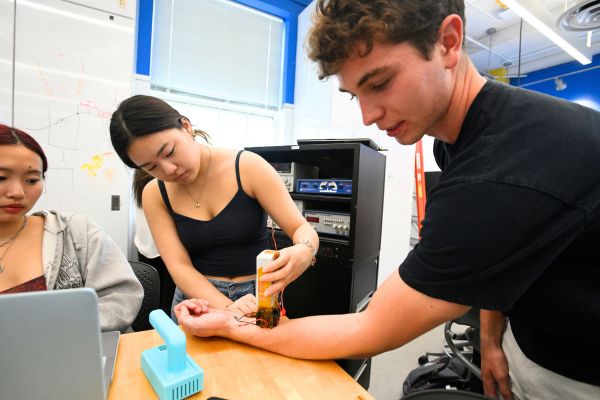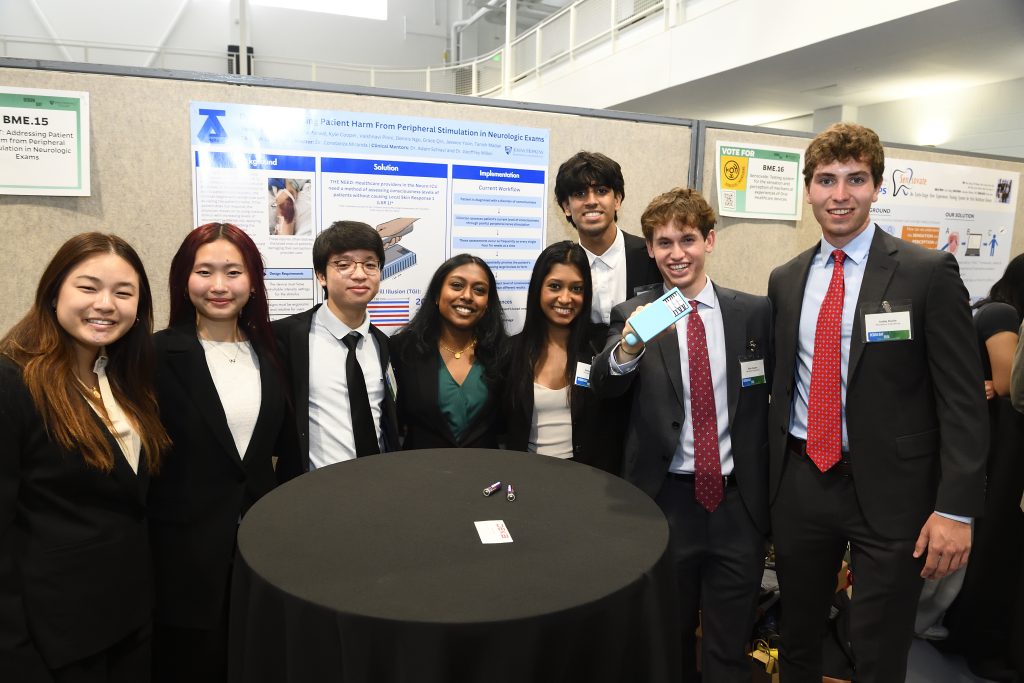Visit a Neuro Intensive Care Unit (ICU) and you might be surprised to see a physician pinching a patient. However, pinches are just par for the course; physicians routinely use painful stimuli to assess a neuro ICU patient’s level of consciousness and neurological function.
These necessary evaluations—which are often conducted multiple times a day—can overtime cause visible bruising, skin damage, and mistrust between the patient’s family members and the provider, said Natasha Porwal, a biomedical engineering rising senior and co-leader of the DeltaT Undergraduate Design Team.
The team has developed a practical tool for neurological assessment that won’t harm the patient. The handheld device causes the patient to experience a burning sensation when applied but doesn’t cause any external damage to the skin. The science behind why this works is the strategic interlacing of hot and cold stimuli, also known as the “thermal grill illusion.”
An advantage of the team’s innovation is that it provides reliable and repeatable stimulus, unlike the current methods.
“Another drawback of the pinching method is that it has no standardization, since the amount of force applied varies greatly depending on the provider. Our solution also offers a way to standardize these evaluations,” said Iralde Sicilia, a biomedical engineering rising senior and co-leader of the team.


